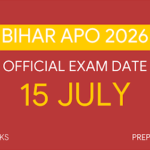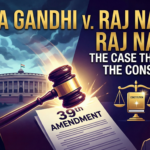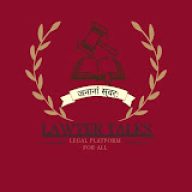Law courses after 12th have become increasingly popular among students in India due to the wide range of career options available. LLB course after 12th offer can be opted for after appearing for law entrance exams. Certain colleges offer law admissions without entrance exams as well. The LLB 5-year course after 12th is open to candidates belonging to any stream. The list of 5-year integrated law courses after 12th includes courses such as BA LLB, BBA LLB, BCom LLB, BSc LLB, and BSW LLB. For certain 5-year LLB courses like BSc LLB, the student may be required to have opted for the science stream in class 12. In this article, we will explore the different law courses students can pursue after class 12 and what they can expect from these programs.
Table of Contents
ToggleTypes of law courses after 12th in India
Today, law has become one of the most sought-after degrees in India and the world. The most common path aspirants follow to attain an undergraduate law degree is the four-year integrated law degree available with many new and interesting combinations nowadays. There are three options open to those interested in legal studies after completing class 12th, namely:
- Five-year integrated degree in Law (BA LLB/B.Com LLB/B.Sc. LLB/BBA LLB/B.Tech LLB)
- Diploma Courses in Law (variable duration)
- Certificate Courses in Law (variable duration)
Five-year integrated degree in Law (BA LLB/B.Com LLB/B.Sc. LLB/BBA LLB/B.Tech LLB):
The concept of a five-year undergraduate course in law dates back to 1998, when it was first introduced by the National Law School of India University (NLSIU), Bangalore, in the form of the integrated BA LLB degree. The increasing popularity of law as a discipline and profession has prompted Delhi University to accept the five-year undergraduate degree programme in law. In the upcoming 2023-24 academic year, the first batch of DU’s five-year LLB programme will commence BA and BBA LLB classes.
The dynamic course structure of an integrated law degree allows the students to reap the benefits of a dual degree while having hands-on training in the clinical aspects of law. From simulated court proceedings in the form of moot court competitions and mock court trials to research-intensive academic submissions, students get well-rounded skill-based training during the five years of this course. Exposure to top industry experts from the corporate sphere and established law firms through internships and the participation of eminent legal luminaries like Supreme Court and High Court Judges as advisory mentors make this an excellent option for students looking to launch successful careers in the legal domain. The different kinds of integrated law courses offered in India after class 12th are:
- Bachelor of Arts and Bachelor of Legislative Law (BA LLB) – One of the most popular and widely offered integrated courses in law, BA LLB combines the study of humanities courses with the core legal theories and subjects. Study of pertinent subjects such as History, Economics, Political Science, Sociology, etc., contributes towards a better understanding of social issues, fostering constructive and critical thinking.
- Bachelor of Commerce and Bachelor of Legislative Law (B.Com LLB) – In addition to law-oriented subjects such as Civil Law, Labour Law, and Criminal Law, the B.Com LLB curriculum also includes subjects from the commerce discipline such as economics, marketing management, English, and accounting concepts.
- Bachelor of Science and Bachelor of Legislative Law (B.Sc. LLB) – A unique blend of science and law disciplines, B.Sc. LLB degree offers a variety of legal and scientific courses, including Biotechnology, Chemistry, Life Science, IT & Communications, Modern Physics, etc.
- Bachelor of Business Administration and Bachelor of Legislative Law (BBA LLB) – BBA LLB curriculum builds upon a foundation of commerce subjects, such as Management Principles, Financial Accounting, Computer Applications, and Effective Communication.
- Bachelor of Technology and Bachelor of Legislative Law (B.Tech LLB) – This unusual but very innovative combination brings together two professional courses; hence, it is a rigorous and more intensive course. It is a 6-year course, spread over 12 semesters, which covers engineering subjects such as Electronic Devices and Circuits, Operating Systems, Basics Electronic Engineering, etc. along with core law subjects.
Diploma Courses in Law: Typically, graduates pursue these short-term courses to enhance their skills in a particular specialisation and increase their chances of finding better employment opportunities. However, certain diploma Law courses can be pursued after class 12th, such as Diploma in Human Rights, Information Technology Laws, Women’s Studies & Gender Justice, Criminology, Business Law, Cyber Law, etc. The duration of these courses is usually 12 months to 18 months.
Certificate Courses in Law: Similar to diploma courses, certificate courses provide you with skill-enhancement opportunities but are only spread over a shorter duration than the former. They can range anywhere from 3 months to a year. The certificate courses available in law are Certificate Course in Cyber Laws, Human Rights, Consumer Protection, Insurance Law, Corporate Law, etc.
Eligibility
A course in law does not require you to belong to any specific stream in class 12th. Only for B.Tech LLB, one must be from a non-medical background or should have studied mathematics in class 12th. Admission to most law colleges in the country happens on the basis of the various national and regional entrance examinations. Following is the table for eligibility to various courses in law post-senior secondary:
| Course Type | Eligibility Criteria |
|---|---|
| Integrated LLB degrees | To appear for law entrance exams: 45% marks in 10+2 for General category and 40% for SC/ ST/ PwD categories. The CLAT Reservation process differs among NLUs. There are 5% lateral reservations for Specially Abled candidates (SAP), and 30% of all positions are reserved for female candidates. Direct admissions to different colleges/universities (if applicable) are made based on percentage criteria set aside by the institutions in addition to Personal interview scores of the interested and eligible candidates |
| Diploma and Certificate Courses | Passed Higher Secondary School (10+2) or equivalent exam with at least 45% marks in aggregate |
Entrance Exams and Admission
Admissions to the integrated undergraduate courses in law are made based on merit determined by candidates’ rankings in the following entrance examinations:
National Level Exams:
Common Law Admission Test (CLAT)
Conducted By : Offline/ 1.5 hours
Courses 5-year-LLB programs and LLM
Maximum Marks150 (150 questions)
Examination Subjects English, General Knowledge, Quantitative Ability, Logical Reasoning, and Legal Aptitude
Mode/Duration Offline/2 hours
All India Law Entrance Test (AILET)
Conducted By : National Law University Delhi
Courses5-year-LLB programs and LLM
Maximum Marks150 (150 questions)
Examination SubjectsEnglish Language, Current Affairs and General Knowledge, Logical Reasoning
Mode/Duration Offline/ 1.5 hours
Law School Admission Test (LSAT)
Conducted By : Law School Admission Council (LSAT- Global) Discover Law (LSAT- India)
Courses5-year-LLB programs
Maximum Marksscale of 420-480 (92 questions/ no specified marking scheme)
Examination SubjectsAnalytical Reasoning, Logical Reasoning 1&2, and Reading Comprehension
Mode/Duration Online/ 2 hours 20 minutes
Delhi University LLB Entrance Test (DU LLB)
Conducted By: National Testing Agency (NTA) on behalf of Delhi University (through DU CUET LLB 2023)
Courses3-year-LLB program
Maximum Marks 400 (100 questions)
Examination Subjects Analytical Aptitude, General Knowledge, English Language and Comprehension, Legal Knowledge and Understanding
Mode/Duration Online/ 2 hours
State and College/University specific Entrance Tests for Law include:
Andhra Pradesh Law Common Entrance Test (AP LAWCET)
Conducted By : Sri Krishnadevaraya University, Ananthapuramu for APSCHE, Hyderabad
Maximum Marks120 (120 questions)
Examination Subjects: General Knowledge and Quantitative Aptitude, Current Affairs, Legal Aptitude
Examination Subjects: Analytical Aptitude, General Knowledge, English Language and Comprehension, Legal Knowledge and Understanding
Mode/Duration Online/ 2 hours 30 minutes
Languages: English/Telugu
Maharashtra Law Common Entrance Test (MH CET Law)
Conducted By : The State Common Entrance Test Cell, Maharashtra
Maximum Marks150 (150 questions)
Examination SubjectsLegal Aptitude & Reasoning, General Knowledge & Current Affairs, Logical & Analytical Reasoning, English Language, and Elementary Mathematics
Examination SubjectsAnalytical Aptitude, General Knowledge, English Language and Comprehension, Legal Knowledge and Understanding
Mode/Duration Online/ 2 hours
LanguagesEnglish/Marathi
Telangana State Law Common Entrance Test (TS LAWCET)
Conducted By : Osmania University, Hyderabad
Maximum Marks120 (120 questions)
Examination Subjects: General Knowledge and Quantitative Aptitude, Current Affairs, Legal Aptitude
Mode/Duration Online/ 2 hours 30 minutes
Languages: English/Telugu
Panjab University Undergraduate Law Entrance Exam (PU UG Law)
Conducted By : Panjab University, Chandigarh
Maximum Marks100 (100 questions)
Examination SubjectsGeneral Knowledge & Current Affairs, Mental Ability, English Language, Aptitude for Law
Mode/Duration Offline/ 90 minutes
LanguagesEnglish
Kerala Law Entrance Exam (KLEE)
Conducted By : The Commissioner for Entrance Examinations (CEE) Kerala
Maximum Marks: 600 (200 questions)
Examination Subjects: General Knowledge, General English, Mathematical Ability, Legal Acumen/ Aptitude
Mode/Duration Online/ 2 hours
Languages: English
Symbiosis Law Admission Test (SLAT)
Conducted By : Symbiosis Law School (SLS), Pune
Courses5-year-LLB programs
Maximum Marks60 (60 questions)
Examination SubjectsLogical Reasoning, Legal Reasoning, Analytical Reasoning, Reading Comprehension, General Knowledge
Mode/DurationOnline/ 1 hour
Army Institute of Law Law Entrance Test (AIL LET)
Conducted By : The Army Institute of Law (AIL), Mohali
Courses5-year-LLB programs
Maximum Marks200 (200 questions)
Examination Subjects: Analytical Skills, Logical Reasoning, Mathematics, Legal Aptitude & Awareness, English Language Comprehension, General Knowledge, and Awareness of Current Events
Mode/Duration: Online/ 2 hours
Guru Gobind Singh Indraprastha University Common Entrance Test (IPU CET-Law)
Conducted By : Guru Gobind Singh Indraprastha University, Delhi
Courses5-year-LLB programs, LLM, PhD
Maximum Marks400 (100 questions)
Examination Subjects: English Language & Comprehension, General Knowledge, Reasoning, Legal aptitude
Mode/Duration: Online (CBT)/ 1 hour
Aligarh Muslim University Law Entrance Test (AMU BA LLB exam)
Conducted By : Aligarh Muslim University, Aligarh
Courses5-year-LLB programs, LLM, PhD
Maximum Marks100 (100 questions)
Examination Subjects: English Language & Comprehension, Logical Reasoning, Current Affairs/ General Knowledge (with emphasis on legal issues)
Mode/Duration: Offline/ 2 hours
Jamia Millia Islamia University Law Entrance Test (JMI BA LLB)
Conducted By : Jamia Milia University, Delhi
Courses5-year-LLB programs, LLM, PhD
Maximum Marks150 (150 questions)
Examination Subjects: English Comprehension, Current Affairs, Legal Aptitude, General Knowledge, Elementary Mathematics
Mode/Duration: Offline/ 2 hours
Geeta Law College Admission Test (GLAT)
Conducted By : Geeta Institute of Law, Panipat
Courses5-year-LLB programs
Maximum Marks100 (100 questions)
Examination Subjects: General Knowledge & Current Affairs, English, Reasoning, Legal Aptitude & Legal Awareness
Mode/Duration: Online/Offline/ 1 hour 30 minutes
ICFAI Law School Admission Test (LSAT)
Conducted By : The ICFAI Foundation for Higher Education (IFHE), Hyderabad
Courses5-year-LLB programs
Maximum Marks125 (125 questions)
Examination Subjects: English, Logical reasoning, Legal Reasoning, General Knowledge and Current Affairs, Analytical Reasoning
Mode/Duration: Online/ 2 hours
Kalinga Institute of Industrial Technology Entrance Examination (KIITEE)
Conducted By : Kalinga Institute of Industrial Technology, Bhubaneshwar, Odisha
Courses5-year-LLB programs
Maximum Marks480 (120 questions)
Examination Subjects: Language Proficiency, Current Affairs, Legal Aptitude, General Knowledge, and Fundamental Mathematics
Mode/Duration: Online/ 150 minutes
NMIMS Law Aptitude Test (NMIMS LAT)
Conducted By : SVKM’s NMIMS School of Law
Courses5-year-LLB programs
Maximum Marks150 (150 questions)
Examination Subjects: General Knowledge & Current Affairs, English, Reasoning, Legal Aptitude & Legal Awareness
Mode/Duration: Online/ 2 hours
University of Petroleum and Energy Studies Law Studies Aptitude Test (ULSAT)
Conducted By : University of Petroleum and Energy Studies, Dehradun
Courses5-year-LLB programs
Maximum Marks150 (150questions)
Examination Subjects: English Language & Comprehension, General Knowledge, Reasoning, Legal aptitude
Mode/Duration: Online/ 2 hours 30 minutes
India International University Law Entrance Test (IIULET)
Conducted By : The India International University Of Legal Education & Research (IIULER), Goa
Courses5-year-LLB programs
Maximum Marks100 (100 questions)
Examination Subjects: Legal Aptitude, Analytical & Logical Reasoning, English Language, General Knowledge And Current Affairs
Mode/Duration: Offline/Online/CBT / 1 hour 30 minutes
Admission to the NLUs is made strictly on the basis of the CLAT scores. Some many other top-ranked colleges and universities consider CLAT scores for undergraduate admissions.
Fee Structure
Based on the program, college/university and the duration, the fee structure for various law courses after 12th differ. Usually, longer undergraduate degree courses are priced higher than the short-term diploma and certification courses, but this does not always hold true. The standing and popularity of the institution as well as the demand for the course, plays a significant role in determining the course fee, which often is subject to change with progressing years. Here is an overview of the average fees for different law courses:
| Law Course | Average Annual Fees Range |
|---|---|
| BA LLB | INR 1.5 Lakhs – 15 Lakhs |
| B.Com LLB | INR 30,000 – INR 20,00,000 |
| BSc LLB | INR 5,00,000 – 10,00,000 per annum |
| BBA LLB | INR 2.5 Lakhs – 7 Lakhs |
| B.Tech LLB | INR 50,000 – 2 Lakhs per annum |
| Certificate Course in Law | INR 1,400 – INR 27,000 |
| Diploma in Law | INR 6,500 – INR 50,000 |
Career Prospects
A degree in law equips you with skills like critical thinking, problem-solving, and effective communication. These transferable skills can be useful in various fields like real estate, education, human resources, government agencies, and more. Legal education also enables you to understand complex legal frameworks, which can be helpful in policymaking and advocacy roles. Therefore, a law degree provides a path towards a fulfilling career in law and opens doors to diverse career opportunities. The journey may be challenging, but the rewards are immense. So go ahead and embrace your passion for justice.
Opportunities for law graduates extend far beyond the legal industry. Apart from entering the practising professionals as advocates, they can serve as government prosecutors, public defenders, legal journalists, or law professors.
Digital forensics, forensic accounting, and forensic psychology are all intriguing new opportunities for attorneys who have completed a forensics-related legal education.
Lloyd Law College offers specialised courses such as the PG Diploma in Forensic Science and the PG Diploma in Forensic Documentation and Examination for students interested in obtaining an interdisciplinary education and forensic science experience. These programmes prepare students for careers as forensic specialists, legal consultants, and more.
Conclusion
Courses in law are indeed very rewarding in terms of skill enhancement, overall personality development and promising career options in future. They open up a vast amount of opportunities. In India, one can opt for integrated law courses that span five years and offer the benefits of dual degree. The most popular is the five-year BA LLB programme, which dates back to 1998 when NLSIU, Bangalore first introduced it. Law school is an excellent choice if you are searching for a career path after high school.
- Dying declaration

- Bihar APO Exam Date 2026: Prelims Scheduled for July 15 – Check Official Notification

- UP APO Exam Date 2026 Announced: Check UPPSC Official Calendar & Schedule

- Indian Army JAG 124 Notification 2026: Vacancies, Eligibility, and Apply Online

- Official IBPS 2026-27 Calendar Out: Check SO Law & RRB Scale II Dates


